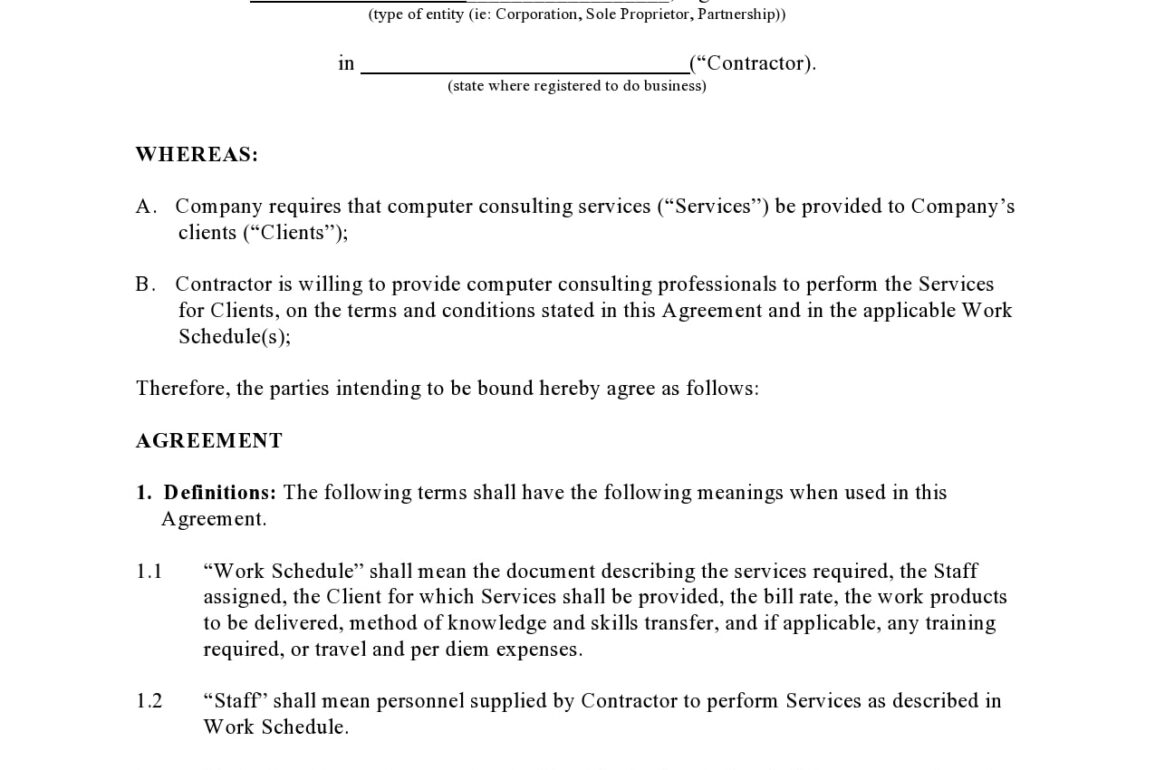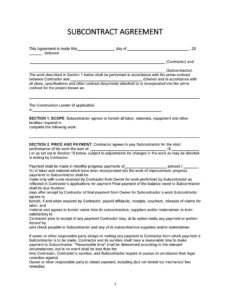What is a variable fee sub-contractor agreement?
A variable fee sub-contractor agreement is a contractual arrangement between a primary contractor and a subcontractor, wherein the subcontractor’s compensation varies based on predefined factors such as project milestones, performance metrics, or percentage-based fees.
How does a variable fee agreement differ from a fixed fee agreement?
Unlike fixed fee agreements, which stipulate a predetermined compensation amount, variable fee agreements allow for flexible payment structures based on project outcomes and performance.
What factors determine the variable fee in a sub-contractor agreement?
The variable fee in a sub-contractor agreement may be determined by various factors such as project milestones, completion deadlines, quality standards, performance metrics, or percentage-based fees on project revenue.
What are the advantages of a variable fee sub-contractor agreement?
Variable fee agreements provide incentives for subcontractors to meet or exceed performance targets, encourage efficiency and productivity, and allow for fair compensation based on project outcomes.
Are there risks associated with variable fee agreements for subcontractors?
Subcontractors may face risks such as uncertainty in income, potential disputes over fee calculations, or challenges in meeting performance targets within agreed-upon parameters.
How are payments structured in a variable fee sub-contractor agreement?
Payments in a variable fee agreement may be structured based on project milestones, with payments made upon achieving specific targets or completion of predetermined phases of work.
Can subcontractors negotiate the terms of a variable fee agreement?
Yes, subcontractors can negotiate the terms of a variable fee agreement, including the factors used to determine the variable fee, payment schedules, and performance metrics.
What happens if performance targets are not met in a variable fee agreement?
Failure to meet performance targets may result in reduced payments or penalties for the subcontractor, as specified in the agreement. Clear provisions for non-performance should be outlined to mitigate disputes.
Are there legal considerations to address in a variable fee sub-contractor agreement?
Legal considerations may include intellectual property rights, confidentiality and data protection, indemnification, governing law, and dispute resolution mechanisms.
How should disputes be resolved under a variable fee sub-contractor agreement?
Dispute resolution mechanisms, such as mediation, arbitration, or litigation, may be specified in the agreement. Parties should agree on the applicable jurisdiction and governing law for resolving disputes.
- Press Release – Product Update Announcement - July 19, 2024
- Press Release – New Service Announcement - July 19, 2024
- Press Release – Company Contract Award - July 18, 2024










